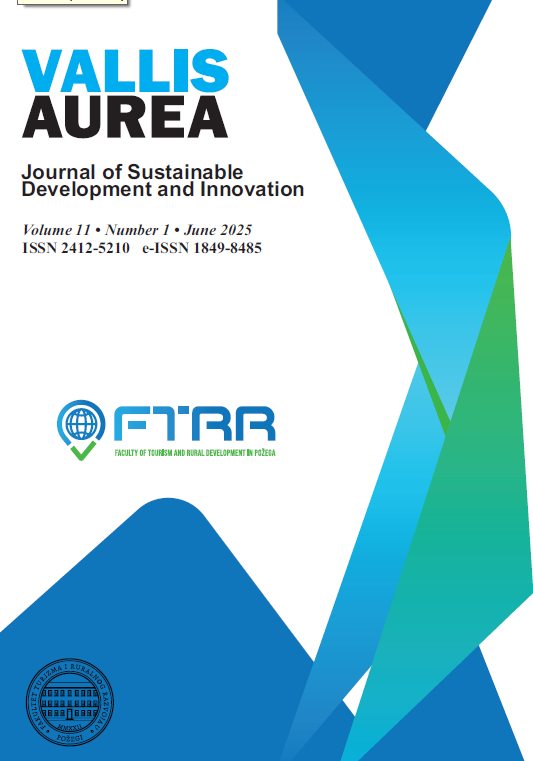The Improving Accessibility of E-Learning Systems for Visually Impaired Students in Sri Lanka: An Evaluation Based on Wcag Principles
DOI:
https://doi.org/10.62598/JVA.11.1.1.12Keywords:
Accessibility, E-learning, Visually Impaired Students, WCAG, POUR Principles, Learner Satisfaction.Abstract
Purpose: This study aims to investigate the means to improve the accessibility of e-learning systems for visually impaired students in Sri Lanka. It focuses on addressing the challenges these students face, particularly during the shift to online learning brought about by the pandemic.
Design: The study builds on the Web Content Accessibility Guidelines (WCAG), utilizing the POUR principles—Perceivable, Operable, Understandable, and Robust—as the conceptual framework.
Methodology: A quantitative design was employed to examine the impact of these principles on learner satisfaction.
Approach: The sample consisted of 150 visually impaired students from the Ceylon Deaf and Blind School, selected through purposive sampling.
Findings: The analysis revealed that both the Perceivable and Understandable factors had a positive and significant impact on learner satisfaction. However, the Operable and Robust factors did not show a significant impact, indicating areas that require enhancement.
Originality/Value: This research contributes to the field by providing empirical insights into the accessibility challenges faced by visually impaired students in Sri Lanka. It underscores the need for improvements in e-learning system design, particularly in operability and robustness, to ensure equitable access.
References
1. Aizpurua, A., Harper, S.; Vigo, M.(2015) Exploring the relationship between web accessibility and user experience. International Journal of Human-Computer Studies, 83, pp.23–34 https://doi.org/10.1016/j.ijhcs.2016.03.008
2. Albusays, K. and Ludi, S. (2016) Addressing web accessibility for visually impaired users. Journal of Web Engineering, 12(4), pp.289–310.
3. Baker, P., Curry, M. and Keating, S. (2019) The role of robust web design in accessibility. Digital Accessibility Journal, 10(3), pp.18–24.
4. Bishop, V. (2004) Learning materials for visually impaired students. Education and Visual Impairment, 5(1), pp.22–30.
5. Bryman, A. and Bell, E. (2007) Business Research Methods. 2nd ed. Oxford: Oxford University Press.
6. Caldwell, B., Cooper, M., Guarino Reid, L. and Vanderheiden, G. (2008) Web Content Accessibility Guidelines (WCAG) 2.0. World Wide Web Consortium (W3C). Available at: https://www.w3.org/TR/WCAG20/ [Accessed 30 Nov. 2024].
7. Candra, G. and Gunawan, I. (2017) Enhancing accessibility in web-based learning. Journal of Educational Technology, 34(2), pp.45–58.
8. Cooper, M., Sloan, D., Kelly, B. and Lewthwaite, S. (2010) A comparative review of web accessibility evaluations. Universal Access in the Information Society, 9(2), pp.15–25.
9. Creed, A. (2016) Challenges of e-learning for visually impaired students. Educational Technology Research, 7(2), pp.33–44.
10. Evett, L. and Brown, D. (2005) Text-to-speech systems for visually impaired users. AssistiveTechnology Journal, 5(4), pp.12–19.
11. Fazlulhaq, N. (2021) Only 30% of Sri Lankan students transitioned to online learning. Daily Mirror. Available at: https:/ www.dailymirror.lk [Accessed 30 Nov. 2024].
12. Gibson, D. (2007). Improving operability in e-learning platforms. Journal of Interactive Learning, 13(3), pp.45–56.
13. Govindasamy, T. (2001). Successful implementation of e-learning: Pedagogical considerations. Internet and Higher Education, 4(3–4), pp.287–299.
14. Green, S.B. (1991) How many subjects does it take to do a regression analysis? MultivariateBehavioral Research, 26(3), pp.499–510.
15. Halliday, M. (1970) Learning aids for visually impaired children. Educational Development Journal, 10(3), pp.40–45.
16. Hyun, J. and Kim, Y. (2008) Improving accessibility for color-blind users. Human-Computer Interaction Journal, 15(2), pp.55–68.
17. Kelly, S., Gale, S. and Hart, C. (2000) The role of vision in learning. Journal of CognitiveEducation, 12(1), pp.19–28.
18. Kesic, D., Plancak, L. and Vidakovic, A. (2010) Barriers faced by visually impaired students ine-learning. International Journal of Educational Technology, 8(3), pp.67–78.
19. Kothari, C.R., 2004. Research Methodology: Methods and Techniques. 2nd ed. New Delhi: NewAge International Publishers.
20. Maddux, C., Johnson, D. and Willis, J. (1997) Educational computing: Learning with tomorrow’s technologies. Educational Computing Journal, 10(4), pp.35–48.
21. Malhotra, N.K. and Dash, S. (2015) Marketing Research: An Applied Orientation. 7th ed.Harlow: Pearson.
22. Munyao, D.M. and Moronge, M. (2018) Accessibility and usability challenges in e-learning for visually impaired learners. International Journal of Educational Research, 56(3), pp.28–40.
23. Padmasiri, S. (2013) Addressing education for the visually impaired in Sri Lanka. Asian Journal of Inclusive Education, 2(1), pp.25–34.
24. Pascual, R., Hornecker, E. and Schmidt, M. (2014) Usability and accessibility: Overlaps in design. Universal Access Journal, 8(1), pp.47–61.
25. Pendigrast, R. (2021) The impact of remote learning on visually impaired students. Journal of Disability Studies, 11(2), pp.63–75.
26. Permvattana, R., Ashford-Rowe, K. and Bossomaier, T. (2013) E-learning challenges for visually impaired students. International Journal of Online Learning, 5(2), pp.19–31.
27. Power, C., Petrie, H. and Bevan, N. (2012) Measuring the accessibility of websites. Journal of Human-Computer Interaction, 22(4), pp.77-89.
28. Saunders, M., Lewis, P. and Thornhill, A. (2007) Research Methods for Business Students. 4thed. Harlow: Pearson.
29. Schmutz, P., Sonderegger, A. and Sauer, J. (2017) Accessibility, aesthetics, and usability in e-learning. Usability Studies Journal, 12(3), pp.30–48.
30. Snow, R.E. (2013) Learner satisfaction in educational systems. Review of Educational Research, 83(2), pp.293–321.
31. Stefi k, M., Peterson, J. and Barger, J. (2011) Designing accessible web applications. Information Systems Journal, 14(2), pp.39–56.
32. Tashakkori, A. and Teddlie, C. (1998) Mixed Methodology: Combining Qualitative and Quantitative Approaches. Thousand Oaks: Sage Publications.
33. Treviranus, J. (2006) Inclusive design in web-based learning environments. Educational Technology & Society, 9(4), pp.64–74.
34. United Nations (UN) (2020) The Impact of COVID-19 on Education: Insights from UNESCO’s Global Education Monitoring Report. Paris: UNESCO.
Downloads
Published
Issue
Section
License
Copyright (c) 2025 Vallis Aurea

This work is licensed under a Creative Commons Attribution-NonCommercial-NoDerivatives 4.0 International License.
Authors of papers for publishing in the journal agree under a Creative Commons Attribution-NonCommercial-NoDerivatives 4.0 International License.https://creativecommons.org/licenses/by-nc-nd/4.0/







